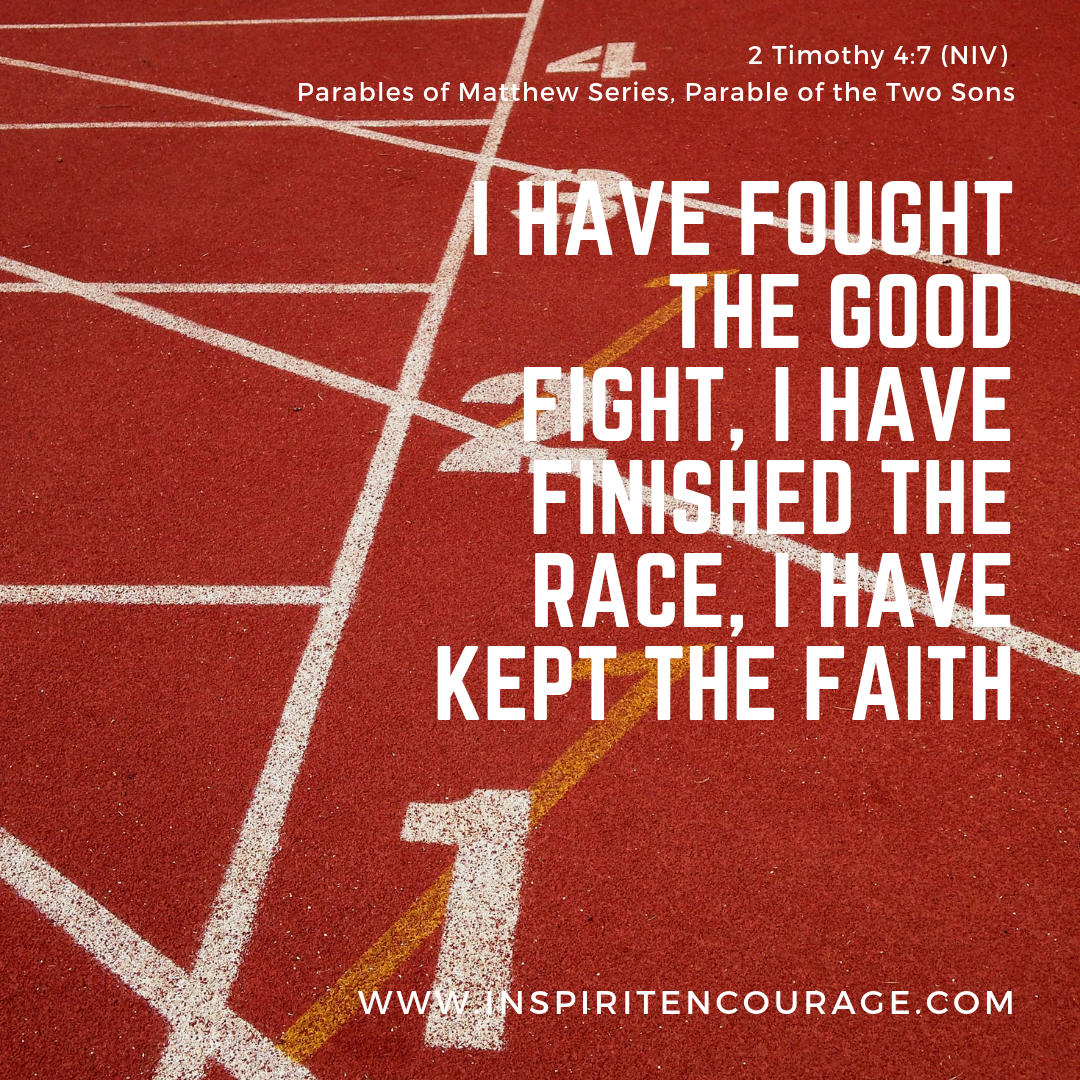Parable of Two Sons, Matt 21:28-33
Confession: I am not a parent. That said, I have had numerous occasions to take care of children and young people. Of course, here we might assume that the sons are grown. Nonetheless, I think the response to the sons as a parent, caregiver, teacher, or boss would be the same. We would reply in some way. You see, it is the father’s non-response that I first notice in this parable. The father asks the son to go to the field, and the son says no. The father does not respond to the no, nor say ‘thank you, son’ to the second.
Is this non-response because the father is withholding judgement until the end? Is it because he knows his sons and they do not always do what they say they will do? But, why not praise the one for a good decision and instruct the other in the bad? Or ask the one who says no if he has other priorities? I imagine that the father smiles and pats each son on the shoulder, sending him on his way. I think I would be inclined to respond vocally as well. But, apparently the father does not.
Then we have the sons. The first son says he will not work in the vineyard, yet does. He has promised nothing but delivers much. The second says he will work but, does not. Both of these responses are aberrant to me. I expect word and deed to follow one another. I’m learning that my expectations on work ethic are not the same as others, but the lack of coherent word and deed really does get my goat (ha, never really thought I’d use that phrase!).
Here though, we have a patient father. The father who has not chastised nor praised the sons. The father leaves it all to the end. He doesn’t try to control the sons’ words or actions. Oh boy. I think that hits home. How often have I tried to ensure that things go just the way I want or expect? How often have I queried and tried to understand the motivation of the answer in order to change it?
Neither son instills trust. Yet, we who instruct others are to trust in the Lord, that the Lord will guide and speak to those that work with us, for us, and grow up under us. It is this trust in the Lord which will give us the trust necessary to let go of the lecture or praise. We have experienced the shame and guilt ourselves and know that it is a lesson itself; there is no need for others to add to that lesson. The praise we give might be uplifting, but in this case, we would have praised a decision in which the action was not carried out. The final result is known only at the end.
We often stop and evaluate progress, how far we are in achieving goals or if we are doing a good job. But, if we are honest with ourselves, we know that there are still many things that may happen before something is finished. External or internal influences, other priorities, and even changes in goals may lead us to not finish or delay significantly. What matters in the end, is if we have followed the requests of the father in our lives, in our field of work. If we have done this, we will finish strong and please the father.
Maybe this will help us, help me, not sweat the small stuff so much. Maybe I’ll step back a bit more now, and let others do what they will do. Each son controls himself; I cannot control him; and the Father allows that free will. The control over the small stuff and over what others are doing will kill me quickly. I really do need to keep the end goal in mind, finishing the race strong. Paul says in 2 Timothy 4:7 (NIV) ‘I have fought the good fight, I have finished the race, I have kept the faith.’
Fighting the good fight; this is the son who overcomes his hesitance or rebellion and obeys the father. There is a personal element of laying down our own life and desires, to pick up the cross. This is what the first son does, maybe the second will one day.
Running the race is making sure we have run the race that is set for us by God, not our own path. He asked the sons to work in the vineyard, not the wine press. He asks and we choose how to respond, and when.
In keeping the faith, we know where to turn when the work is too hard, or too emotionally draining, or just too everything. And we do turn to him.
God is there, always by our side, faithfully fighting the fight and running the race with us. We just need to reach out and grab his hand.
